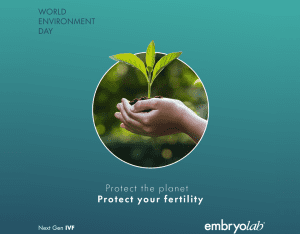 Dr Nicholas K Christoforidis, MD, MSc, FRCOG, Consultant Obstetrician & Gynaecologist, Embryolab Clinical & Scientific Director
Dr Nicholas K Christoforidis, MD, MSc, FRCOG, Consultant Obstetrician & Gynaecologist, Embryolab Clinical & Scientific Director
The environmental crisis poses a significant threat to human health, particularly reproductive health. Environmental pollutants, including chemicals, plastics, and heavy metals, are pervasive in our environment, contaminating our air, water, and food. These pollutants can disrupt the body’s endocrine system, leading to a range of reproductive issues.
Endocrine Disruption: The Silent Culprit
Endocrine disruptors, chemicals that interfere with the body’s hormone signaling, are at the heart of the problem. These substances can mimic or block the actions of natural hormones, causing imbalances that can lead to:
- Reduced ovarian reserves and sperm quality
- Ovulation problems and infertility
- Increased risk of miscarriage and pregnancy complications
The Mounting Evidence
Epidemiological studies have consistently linked exposure to environmental pollutants to various reproductive problems in both men and women. These findings highlight the urgent need to address this growing concern.
Strategies for Protection
Protecting our reproductive health requires a multi-pronged approach:
- Individual Action: Make informed choices by opting for eco-friendly products, avoiding processed foods, and filtering water.
- Public Awareness: Educate the public about the dangers of environmental pollutants and their impact on reproductive health.
- Policy Change: Advocate for policies that promote sustainable practices, reduce pollution, and protect environmental health.
A Call to Action
Safeguarding our reproductive health is essential for ensuring the well-being of individuals and future generations. By taking collective action to address the environmental impact on reproductive health, we can create a healthier and more sustainable future.






